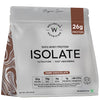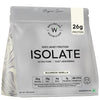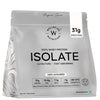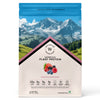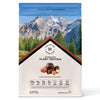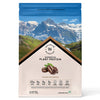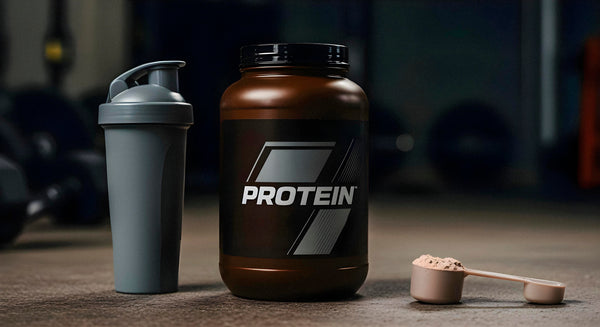If you're following a ketogenic diet, whether you're new to it or have been on it for some time, you may have wondered how much protein is appropriate. Can consuming too much protein interfere with ketosis? And more specifically, do protein powders fit into a keto lifestyle?
The ketogenic diet is centered around reducing carbohydrate intake and increasing healthy fats to shift the body into a metabolic state known as ketosis. In this state, the body primarily burns fat for fuel instead of carbohydrates. Unlike conventional diets that focus on calorie restriction or fat reduction, keto is more about reprogramming how your body generates energy by minimizing carbs, keeping protein intake moderate, and prioritizing fat.
Still, protein plays an essential role. It supports muscle maintenance, helps manage hunger, and contributes to overall metabolic health. However, balance is key. Too little protein may lead to muscle loss and fatigue, while too much could potentially disrupt ketosis.
So, how much protein is considered ideal? And where do protein powders come in?
Let’s explore this further.
Understanding Protein’s Role in a Ketogenic Diet
In a standard diet, carbohydrates are the body’s primary energy source. But on keto, carb intake is significantly restricted. As a result, your body starts producing ketones, an alternative fuel made from fat.
Protein, while not a major energy source in this scenario, plays a critical role in supporting muscle mass, tissue repair, enzyme production, and metabolic function. However, excess protein can be converted into glucose through a process called gluconeogenesis. If this happens in large amounts, it could raise blood sugar levels enough to reduce ketone production, potentially pulling you out of ketosis.
To avoid this, most ketogenic guidelines recommend keeping protein intake at around 20 to 25 percent of your total daily calories. This ensures your body gets enough protein for essential functions without disrupting your metabolic state.
Why Protein Still Matters on Keto
Although fat is the cornerstone of the ketogenic diet, protein supports many of the body’s foundational systems:
-
Preserves lean muscle mass, particularly during weight loss
-
Aids in muscle recovery if you’re active or working out regularly
-
Promotes satiety, helping reduce cravings and unnecessary snacking
-
Supports immune and hormonal health, especially during the early stages of keto adaptation
In short, while keto isn’t a high protein diet, protein is still non-negotiable; it simply needs to be consumed in the right amount and from the right sources.
Using Protein Powder on a Ketogenic Diet
A high-quality keto-friendly protein powder can be a convenient way to meet your protein needs, particularly on busy days, after workouts, or when you're on the go. But not all protein powders are created equal. Many contain hidden sugars, excess carbs, or artificial additives that can compromise ketosis.
Here’s how to incorporate protein powder into your routine without derailing your goals:
Keto Smoothies:

Blend a scoop of protein powder with unsweetened almond milk, nut butter, and spinach. This makes a quick, nutrient-packed breakfast or meal replacement.
Post-Workout Shakes:

After exercise, your muscles need protein for recovery. A fast-absorbing protein powder, especially whey protein isolate, can deliver essential amino acids without the extra carbs.
Protein Coffee:

Add a scoop of unflavored or vanilla protein powder to your morning coffee or bulletproof brew. It boosts satiety and adds nutritional value, making your coffee more than just a caffeine hit.
Quick Snacks:

Mix your protein powder into chia pudding, nut-based yogurt, or even almond flour pancakes. It’s an easy way to up your protein without spiking carbs.
How to Choose the Best Keto-Friendly Protein Powder
Choosing the right protein powder for your keto diet depends on your dietary preferences and health goals. Regardless of the type, look for the following:
-
Low net carb content (ideally 2 grams or less per serving)
-
No added sugars or syrups
-
No artificial fillers, flavors, or sweeteners
-
Clean, recognizable ingredients
-
Good digestibility (especially if you're prone to bloating or digestive issues)
Here are two standout options by Wellbeing Nutrition tailored for ketogenic lifestyles:
Whey Protein Isolate
If you tolerate dairy, whey protein isolate is one of the cleanest and most effective options post-workout. It’s rapidly absorbed, rich in essential amino acids, and contains minimal carbs. A high-quality whey isolate should be free from added sugars, artificial preservatives, and fillers, supporting muscle recovery while helping you stay in ketosis.
Vegan Plant Protein
For those who are dairy-free or plant-based, a well-formulated vegan protein can be just as effective. Look for a blend of pea and brown rice proteins, ideally enriched with superfoods like moringa, turmeric, or ashwagandha. Added digestive enzymes can enhance absorption and ease digestion. A good plant protein should be low in carbs, free from soy, gluten, and artificial additives, perfect for clean, keto-friendly nutrition.
Whether you prefer dairy or plant-based options, both forms of protein powder can align with a ketogenic diet, provided they are clean, low in net carbs, and suited to your body’s needs.
Final Thoughts
Yes, protein powder can absolutely be keto-friendly when used thoughtfully. It’s a useful supplement that can support muscle health, boost recovery, and add convenience to your daily routine without compromising your state of ketosis.
The key is to choose clean, low-carb, sugar-free protein powders such as whey protein isolate or plant-based options specifically designed for ketogenic needs. Use them as a supplement to whole, nutrient-dense meals, not a replacement.
When incorporated the right way, protein powder becomes a smart tool that adds balance, structure, and flexibility to your ketogenic lifestyle—keeping you fueled, focused, and firmly on track.








